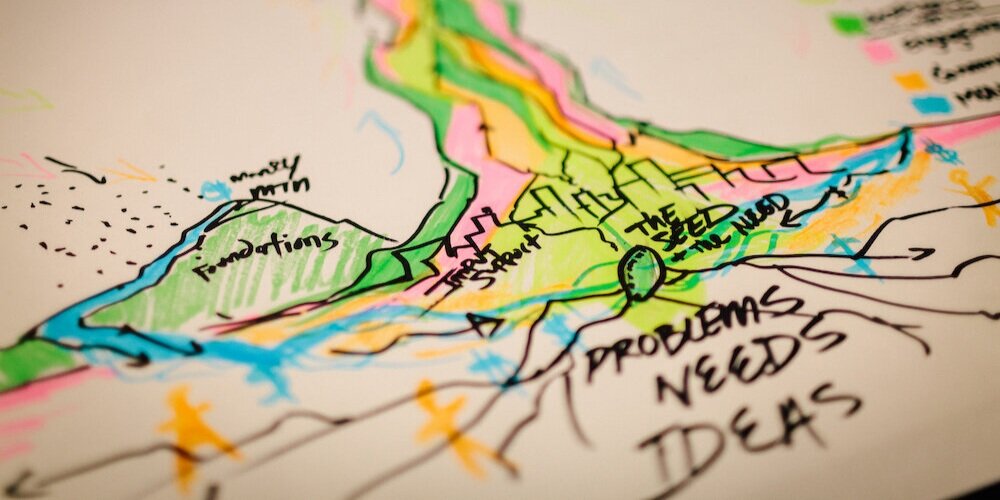Credit: Erin Long
Assets for Artists believes in an inclusive creative economy. As our work becomes more explicitly focused on dismantling systems of racism and discrimination and on creating equity in the arts, we’d like to share some of the ways that we endeavor to provide artists from traditionally marginalized backgrounds the tools to succeed in, and even to redesign, the existing creative economy. We know that, as a currently all-white team, our work cannot undo centuries of white supremacy, but we seek to do our part, and we are always looking for additional partnerships and ways to develop greater equity in the arts. If you have a suggestion, direction, or resource you’d like us to explore, we’d love to hear from you.
In sharing some of our work with you, we aim to create an open line of communication between our programming and those we serve.
Current Stats
Approximately half of our webinar trainers identify as BIPOC and about the same percentage identify as LGBTQ+. We know it’s important that artists are served by mentors who can speak to their specific challenges and histories. Meet Our Trainers.
In 2019, 31% of our Capacity-Building grantees (who are predominantly located in Massachusetts) identified as BIPOC. In 2020, that rose to 50%. Our 2021 Capacity-Building grant program will be open exclusively to MA-based BIPOC artists. Meet last year’s Grantees.
At the Studios at MASS MoCA, 46% of our artists-in-residence in 2019 identified as an artist of color. (The pandemic means we don’t have representative stats for 2020.) We are working with a variety of partners to establish fellowships that specifically increase the number of Black and Indigenous artist residents, who are underrepresented at the Studios. Meet Our Residency Alumni.
Upcoming 2021 Programming
Supporting artists of color has long been a component of many of our programs, but beginning in 2020 and expanding into 2021, we are making this support a primary focus of our work. This focus will strengthen opportunities for BIPOC-affinity cohorts to learn from and collaborate with each other. Here are some of the upcoming projects and programs to look for:
Capacity-Building Grant Program. Our 2021 Massachusetts Capacity-Building Grant Program will be available exclusively to artists of color. Applications are open through January 17.
Workshops. Our Massachusetts business and financial workshops (taught by a majority of BIPOC artists themselves) will prioritize attendance by artists of color. See the autumn/winter 2020-2021 line up.
Affinity Groups. We are providing the financial resources for structured, justice-oriented conversations among BIPOC-affinity artists, white-accomplice/ally artists, and mixed-affinity groups.
Jan 25 - Feb 15, 2021: “Applying Collective Liberation for Artists,” a 4-part intensive designed exclusively for and by BIPOC artists in Greater Boston.
Winter/Spring 2021: “Co-Labor Like An Accomplice” with Pampi & Mattia Maurée
Winter/Spring 2021: “Decolonize Your Art Practice: Perfectionism” with the Glitter Goddess Collective.
BIPOC Futurity Residency at the Studios at MASS MoCA. A four-week, fully-funded residency for Massachusetts-based BIPOC artists, co-designed by the creative team of bashezo, Nadroj Holmes, and Cierra Peters of the CreateWell Fund (among many other hats they wear). They will also seek input from a variety of BIPOC artists and initiatives around the state. While still being designed, this residency will provide space, time, community, and funding for at least 12 MA artists to come together in an all-BIPOC space to make, design, and converse, with an aim toward imagining a justice-oriented future in the arts. If you’d like to receive updates on this residency or get involved, email studios@massmoca.org, and we’ll connect you with the co-designers.
Residency Fellowships. Although operating at a greatly reduced capacity during the pandemic, the Studios at MASS MoCA is pleased to welcome 9 Massachusetts BIPOC artists for fully funded 2021 Financial Wellness Residencies (in addition to the BIPOC Futurity Residencies mentioned above).
Puerto Rico Artist Fellowships. Our Puerto Rico Artist Fellowships (2018 - present) will pick up again in late 2021 and 2022, after coronavirus delayed our ability to bring our eight 2020 fellows to Massachusetts.
Broader Practices
To support the above programming, and acknowledging that MASS MoCA’s staff is disproportionately white, the Assets for Artists team has been working with/within these broader practices:
Paying for Expertise: Including consultant line-items in our budgets and ensuring we pay those artists of color whose expertise we seek as we expand this work.
Antiracism at Home: As part of the North Adams Artist Impact Coalition (AIC), we work with a number of local arts organizations to hold monthly community conversations on race, racism, and the antiracism work that must be done in our own neighborhood. Join the AIC mailing list.
Accessibility: We have many improvements to make to increase access to our programming. A4A webinars now offer CART live-captioning and our in-person workshops offer ASL interpretive services. Additionally, we have begun offering select webinars in Spanish or taught by bilingual trainers.
Institutional Conversations: All A4A staff are active participants in the broader work being done at MASS MoCA to dismantle traditions of white supremacy within museum culture, starting within our own department. This involves co-leading community initiatives, attending advisory meetings, and continually self-educating ourselves outside of the work day.
We are indebted to many partners for their help in co-designing or supporting this work. We’d like to give special recognition to the co-tenders of the CreateWell Fund, the community advisors of the ValleyCreates initiative, the Northeast Indigenous Arts Alliance, MCLA’s Berkshire Cultural Resource Center, New England Foundation for the Arts, the Barr Foundation, and all of our trainers of color and white accomplice trainers.
If you would like to learn more about artist support services provided by BIPOC-run organizations, we have some amazing Massachusetts colleagues we’d love to recommend:

